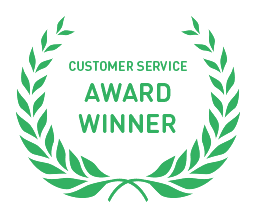DNA Testing in Singapore
Affordable, accurate, DIY sampling! EasyDNA Singapore offers fast, affordable and accurate DNA testing services. Our DNA tests, available for both legal and peace of mind purposes, can be used in many situations from resolving family issues to assisting in legal matters. All tests are performed in an internationally accredited ISO17025 laboratory. We know that doing a DNA tests is not a straightforward choice and picking the right company will ensure your peace of mind. So why not choose EasyDNA Singapore? Our DNA paternity test starts from only SGD540 for testing alleged father and child. There are NO EXTRA FEES and you get your result in just 7-8 working days with a 99.99% accuracy. Contact us today!

Featured On:





Why Choose Us
We offer fast, accurate and affordable DNA tests! All samples are tested at ISO 17025 accredited laboratories. Your results will be ready in just 7-8 days from the date your samples are received at our labs – we appreciate that quick results mean less stress and anxiety. Our tests are highly accurate, up to 99.999% for paternity tests. Once you complete the order, your easy-to-use home DIY DNA test kit will be sent out to the mailing address that you provide. You should receive it in just a few days or alternatively you can pick it up directly from our office. You can be rest assured that your privacy will be fully respected and that your test kit will be packaged discreetly.
We Support:





Quality
Quality is in our DNA. We maintain the highest levels with every DNA test to provide you with a service that is faultless.
Accreditation
With the highest, globally recognised accreditations, you can be assured that we’re operating to the highest standards in the industry.
Customer Care
We are a local DNA testing company with a team of experts ready to answer all your questions and guide you throughout the process.
How It Works
1
Order Test Kit
2
Send Samples
3
Receive Your Results
We are focused on innovation
Our Tests
Are you looking for specialist in Paternity testing for peace of mind and legal purposes? EasyDNA offers affordable DNA testing in Singapore including a wide range of tests – DNA Profiles, Relationship tests, Health Screening/Genetic Predisposition tests, Forensic DNA and Ancestry DNA testing. EasyDNA paternity tests provide results that are up to 99.99% accurate in cases where the tested, alleged father is the biological father of the child. If he is not the father, he will be excluded with a 100% probability. Our relationship tests will help determine whether alleged relatives such as siblings, uncle/aunts, grandparents and their nephews, nieces or grandchildren are truly biological related.
We are here to help you
Your DNA Samples
DIY DNA sample collection kits will be provided for our tests. Standard samples for most tests including paternity and relationship tests are oral swabs and samples can be very easily collected in the comfort of your home. Visit our collection guide for information about how to collect your samples from home using our DIY DNA test kit. Samples can be kept for quite some time if instructions given on sample collection are followed. We are also able to work on samples such as nail cuttings, hair, garments and toothbrushes using our forensic DNA testing service. Our state-of-the-art genetic identification systems are able to extract DNA on many other non-standard samples. The discreet DNA samples section has more information on other types of samples that can be used for testing.
